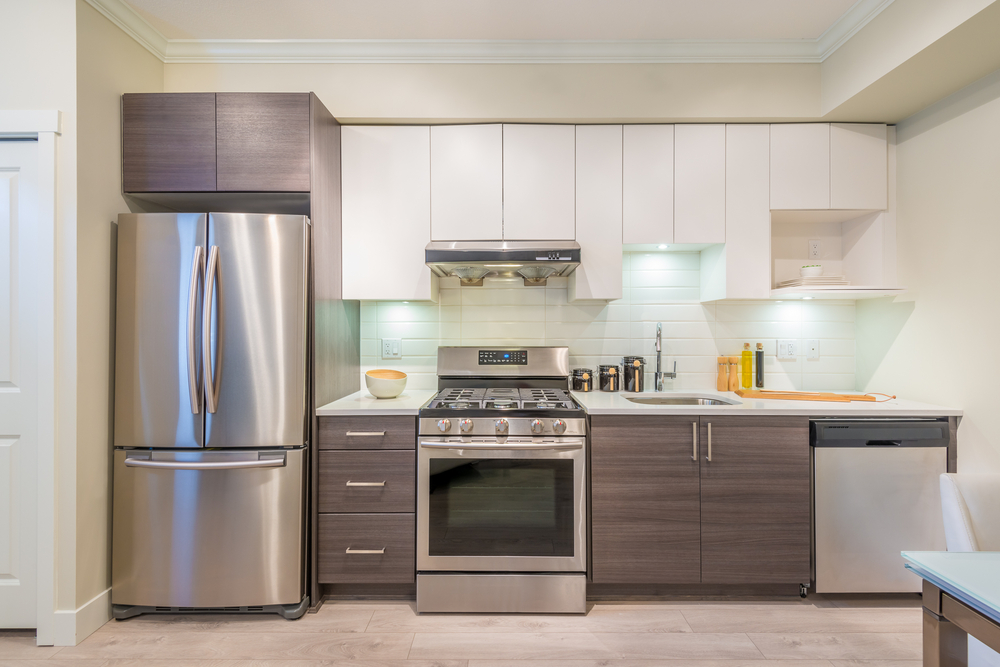
Purchasing a new home is one of the most significant investments you’ll ever make, and it’s crucial to ensure that your prospective property is in excellent condition. Home inspections are a vital part of the home buying process, helping you uncover potential issues and ensuring your peace of mind. However, one common question that often arises is whether home inspectors verify if the appliances work. Today, we’ll take a closer look at this important aspect of home inspections and how New Home Inspectors, located on Long Island, can help you make an informed decision about your new home.
Why Are Appliances Important in a Home Inspection?
Appliances play a significant role in our daily lives, and they can be a considerable investment for any homeowner. When you’re purchasing a new home, knowing that the appliances are in good working order can save you time, money, and hassle down the line. That’s why it’s essential to consider the condition and functionality of appliances during a home inspection.
What Does a Home Inspector Typically Check?
During a standard home inspection, a certified home inspector like those at New Home Inspectors will evaluate various components of the property, including:
- Structural Elements: This includes the foundation, walls, roof, and overall structural integrity of the home.
- Electrical Systems: Inspectors will assess the electrical system, ensuring it’s safe and up to code.
- Plumbing Systems: Plumbing inspections cover water supply, drainage, and the functionality of fixtures like sinks, toilets, and showers.
- HVAC Systems: Home inspectors will assess heating, ventilation, and air conditioning systems to ensure they are in working order.
- Roof and Attic: The roof’s condition is crucial, and inspectors will also check the attic for signs of leaks or insulation issues.
- Exterior: The exterior of the home will be inspected for damage, such as siding or foundation cracks.
- Appliances: This includes examining the appliances in the home to determine if they are functioning properly.
Appliance Inspection During a Home Inspection
When it comes to appliances, home inspectors will typically perform a visual inspection to determine if they are in good condition and whether they appear to be functioning as intended. This inspection may include checking for visible damage, loose connections, and signs of wear and tear. However, it’s important to note that a home inspection is not an in-depth assessment of appliances, and inspectors may not conduct a full operational test on each appliance.
What Appliances Are Included in a Home Inspector’s Checklist?
During a home inspection, various key appliances, primarily those in the kitchen, undergo a visual assessment. Here’s a glimpse of the appliances typically scrutinized by home inspectors:
- Cooktops, Stoves, and Wall Ovens: Home inspectors meticulously examine the condition of knobs, burners, and doors on both electric and gas appliances within the kitchen.
- Dishwashers: Home inspectors operate the dishwasher controls and inspect for any signs of water damage or leaks.
- Microwaves and Exhaust Fans: Built-in appliances like microwaves and exhaust fans are inspected for damage and to ensure their proper functionality.
- Food Waste Disposals: To check for leaks, home inspectors run the disposal and assess its performance.
Basically, home inspectors conduct a comprehensive visual inspection to ascertain their overall condition and functionality.
What Isn’t Included in the Appliance Assessment?
A home inspector’s scope doesn’t encompass the examination of removable appliances like standalone microwaves, washing machines, refrigerators, and dryers. In accordance with the ASHI Standards of Practice, home inspectors do not undertake the following verifications:
- Appliance Features: Home inspectors do not assess an appliance’s thermostat, the functionality of heating elements, door seals, timers, clocks, or other specialized features.
- Operation of Controls: Additionally, they do not check the flawless operation of every facet of an appliance, including individual control functions.
However, it’s essential to note that unless specifically addressed, the assumption should be that every appliance remains with the house. The purchase agreement will state if it is not.
While there is consensus among home inspection organizations that certain features fall outside their purview, experienced home inspectors may still conduct selective assessments of appliances.
Why Full Operational Tests Aren’t Always Conducted
There are a few reasons why home inspectors may not conduct full operational tests on appliances:
- Time Constraints: Home inspections are comprehensive, covering various aspects of the property. Conducting in-depth tests on every appliance could be time-consuming.
- Liability: Home inspectors are liable for any damage they may cause during testing. Running appliances through full operational tests could potentially lead to malfunctions or issues that were not present before the inspection.
- Limited Access: In some cases, appliances may not be accessible for testing due to the seller’s belongings or other factors.
What Can Homebuyers Do?
While home inspectors provide valuable insights, homebuyers can take additional steps to ensure the functionality of appliances:
- Ask the Seller: Before the inspection, ask the seller for information on the age and condition of the appliances.
- Request an Appliance Warranty: Consider negotiating with the seller to include a home warranty that covers appliances for a certain period after the sale.
- Conduct Your Own Tests: After moving in, perform your own tests on appliances to ensure they work as expected.
Conclusion
When it comes to home inspections, verifying whether appliances work is an important but limited aspect of the process. New Home Inspectors on Long Island will provide you with a comprehensive assessment of your potential new home, including a visual inspection of the appliances. To ensure peace of mind and the proper functioning of appliances, consider additional steps like requesting an appliance warranty and conducting your tests. By combining these efforts, you can make a well-informed decision about your new home purchase.

